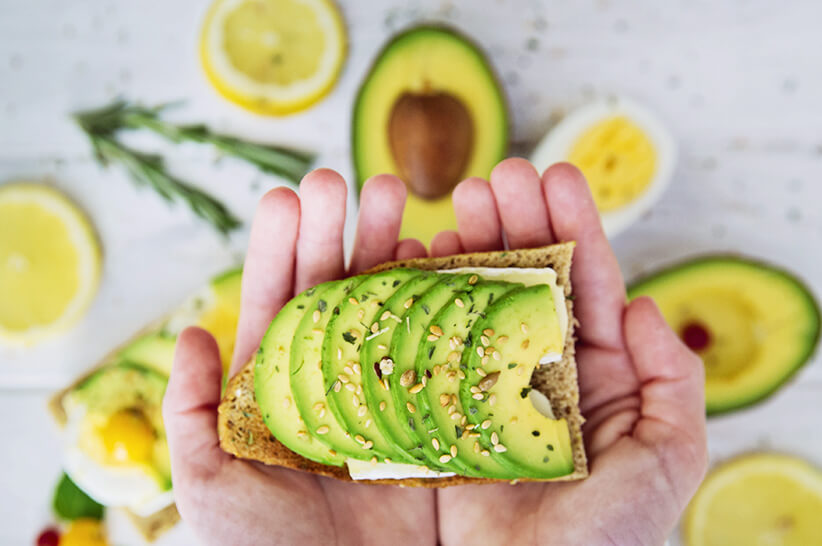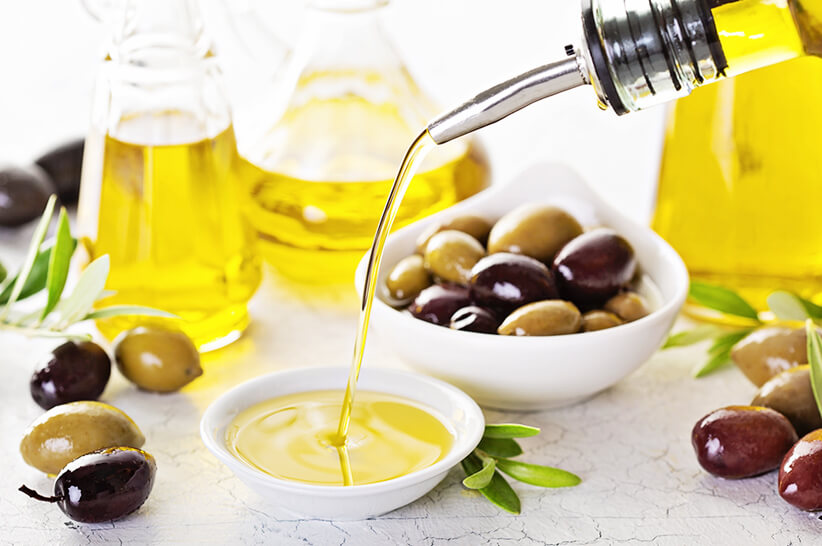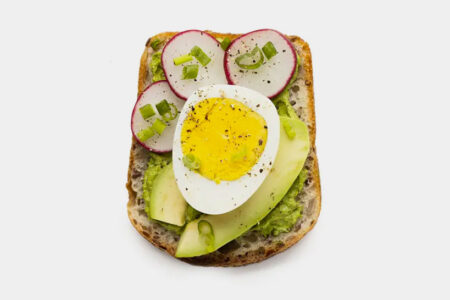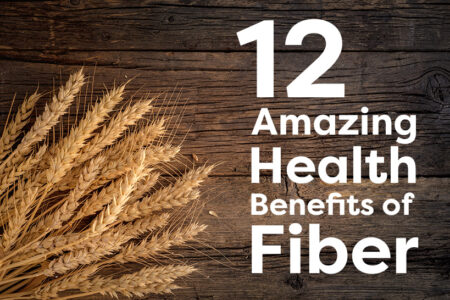Two of the most popular diets right now are the ketogenic diet and the Mediterranean diet. Here’s what makes each one special and how to make your pick.
The Mediterranean diet and the ketogenic (keto) diet are both highly popular in the health and wellness sphere, but they’re also very different. If you’re interested in losing weight or improving your health, you may be wondering which diet is better for you: the Mediterranean diet vs keto.
Before making your pick, it’s a good idea to become familiar with both. Learning about what characterizes each diet, what the research says about them, and what their differences and similarities are is a good way to start.
In this article, we’ll explain what each diet is about. We also offer some useful and expert-driven tips that can help you decide which approach is right for you.
What Is the Mediterranean Diet?
The Mediterranean diet is also known as Mediterranean-style eating pattern. It’s an umbrella term covering a wide range of diets of people living in the 18 countries bordering the Mediterranean.
Interest in this diet started in the 1950s after research carried out by Dr. Ancel Keys found that individuals living around the Mediterranean had lower rates of coronary heart disease 1. Studies carried out since have confirmed this was the case 2. As Dr. Dilraj Kalsi, founder of Hippocrates Lounge, explains,
The Mediterranean diet is the most well-researched of any diet and is particularly good for optimizing heart health.”
Keep in mind that the Mediterranean diet is a term that refers to a wide range of cuisines, which makes coming to a standard definition difficult. But so far, researchers did find some common features of these diets 3:
- Plant-based: lots of fruits, vegetables, whole grain cereals, beans, nuts, and seeds
- Minimally processed: locally grown, seasonally fresh foods only
- High-quality fats: olive oil is the main source of fat
- Low to moderate dairy intake: mainly as cheese and yogurt
- Protein: moderate intake of fish, red meat, and eggs
- Limited sweets: fresh fruits are the main dessert and other desserts are based on nuts and olive oil
- Moderate alcohol: A glass of red wine with meals
- Herbs and spices: to add flavor to foods instead of salt
And if you’re now wondering, “but is the Mediterranean diet low in carbs?” It is lower in carbs than Western diets or the standard American diet, but it’s not exactly low-carb. Researchers typically note that less than 50% of daily calories come from carbs on Mediterranean-style diets, which is considered moderate-carb intake. “But what should my macros be on a Mediterranean diet?” you may wonder. On some of these diets, the typical macros are: 40% fat, 40% carbs, and 20% protein.
What Is the Keto Diet?
The ketogenic diet (keto, for short) is a very-low-carb, if not the ultimate low-carb, diet.
It’s been a popular weight-loss diet the past decade. However, its use as a weight-loss diet is fairly new. Originally, keto was actually used to treat epilepsy in children back in the 1920s 4. That’s after researchers noticed that restricting carbs leads to something called ketosis just like fasting does, and fasting was a common epilepsy treatment of the day.

But then again, what is ketosis?
It’s a metabolic state that produces acidic molecules called ketones, from which the keto diet got its name. Evolution designed ketosis to help us survive periods of starvation. Because when you don’t eat enough carbs, the body will not get enough glucose to fuel the brain and other tissue. To make up for this lack, it starts to burn its fat stores and the liver uses that fat to make ketones – molecules that can pass the blood-brain barrier to keep you alive.
And while ketosis is primarily a survival strategy, keto dieters take advantage of it as a way to get their bodies to burn fat.
With that out of the way, how does this diet look like?
The ketogenic diet follows a specific macronutrient balance: 50-60% fat, 30-35% protein, and 5-10% carbohydrates. To achieve this balance, keto dieters base their meals around the following foods:
- Fatty meat and fish: bacon, steak, chicken thighs, salmon, mackerel, etc
- Full-fat dairy: yogurt, cream, butter
- Unrefined oil: extra-virgin olive oil and coconut oil
- Nuts and seeds: walnuts, macadamia, almonds, nut butters, and nut flours
- Low-carb plant foods: avocados, zucchini, cauliflower, broccoli, and berries
But sometimes it’s easier to define a diet by what food it limits. In the case of keto dieters have to avoid:
- Cereals: wheat, oats, rice, millet, corn, and others
- Legumes: beans, peas, lentils, and chickpeas
- Starchy veggies: potatoes, carrots, parsnips, sweet potatoes, etc.
- Most fruit: bananas, apples, pears, prunes, figs, and so on
- Sugar and most sweeteners: including table sugar, honey, maple syrup, and corn syrup
The goal of eating this way is to reduce your intake of carbs while ensuring you’re getting enough protein, fat, vitamins, minerals, and fiber. To get a comprehensive keto diet food list, click here.
Mediterranean Diet and Keto Similarities
As already said, the Mediterranean diet and the keto diet are two very different eating patterns. However, they do have a couple of things in common:
Focus on whole foods
Both diets focus on stripping highly processed foods in favor of whole foods” says Dr. Dilraj Kalsi.
Fat as healthy
Paulina Nowak, RD from Authority Dental explained that
Both diets allow for high-fat foods.”
Ingredients like olive oil, nuts, seeds, and oily fish get the thumbs up on these diets.
Weight loss
Similar ingredients
Both diets allow plant-based fats, vegetables, eggs, and fatty fish, explains Erik Abramowitz, NTP, from Holistic Nootropics.
What Sets the Mediterranean Diet Apart from Keto?
And while we’ve found that these diets do share things in common, they do differ quite a bit. Here’s more on the Mediterranean diet vs. keto:
Less restrictive
“There are no restrictions on the amount or kind of food you eat on the Mediterranean diet, while keto is very strict and specific in this matter” explains Paulina Nowak, RD. The Mediterranean diet is also more about what you can eat, while keto emphasizes what you shouldn’t eat to stay in ketosis.
Carbs for energy
On a Mediterranean diet, your cells will get their energy from carbs and glucose. On a keto diet, you’ll get most of your energy from fat and ketones.

The keto diet forces the body into a metabolic state different from the one you’re used to – and this sets it apart from all other diets, including the Mediterranean.
Focus on the food
Another major difference between these two eating patterns has to do with what’s in focus: food vs. macronutrients. When you go on a Mediterranean-type diet, you’ll focus on eating whole foods, olive oil, cheese, fish, and other staples. But when you go keto, you’ll need to pay special attention to the macronutrient balance of your foods first and everything else second.
Cardiovascular health
There’s no doubt that the Mediterranean way of eating is great for heart health. A large body of research is linking this particular diet to a lower incidence of chronic diseases and improved longevity 7. With keto, the research is solid when it comes to seizure reduction, but we know less about how it impacts cardiovascular health 4.
Less saturated fat
With its emphasis on fat, the keto diet inevitably leads people to eat lots of saturated fat from butter, bacon, red meat, poultry, and even coconut oil. The Mediterranean diet, on the other hand, is richer in monounsaturated fats while saturated fat intake remains fairly low, sometimes as low as 8% of daily calories 8.
Which Diet Is Right for You?
When trying to decide between the Mediterranean diet vs. keto, ask yourself the following:
- Do I want to lose weight quickly or should I follow a long-term plan?
- Can I really go without carbs for months or even years?
- Do I even like the flavors of Italian, Greek, and Spanish cooking?
- Is my main focus cardiovascular health or boosting my metabolic flexibility?
The keto diet can help you lose weight fairly quickly. This diet is known for its appetite-suppressing effects, which makes losing weight so much easier 9! It also forces the body into fat-burning mode by radically depriving it of its most important fuel (i.e. glucose).
The Mediterranean diet can also help you lose weight but at a steadier rate. The plus side is that you don’t have to forgo carbs, which can be a pretty tough feat. Just imagine having to avoid pasta, rice, bread, beans, and all your favorite sweets! Another plus of the Mediterranean diet is that it’s proven to protect cardiovascular health. But keto comes with health benefits too, especially when talking about the Mediterranean diet vs keto for diabetics. “Keto has most evidence for reducing seizure frequency for people with epilepsy but can also improve blood sugar and cholesterol levels” explains Dr. Kalsi.
Can You Do Both Diets at the Same Time?
Yes, there is such a thing as a Mediterranean keto diet. It brings you the best of both worlds in case you’re really indecisive.
So, what is the Mediterranean keto diet?
It’s also called a low-carb Mediterranean diet, and it involves foods typically associated with Mediterranean countries while also focusing on low-carb intake. A study published in a 2008 issue of the Nutrition Journal put such a diet, called a Spanish Ketogenic Mediterranean Diet (SKMD) to the test 10.
This diet involves the incorporation of virgin olive oil as the principal source of fat (over 30 ml/day), along with moderate red wine intake (200–400 ml/day), green vegetables, and salads as the main source of carbohydrates, while fish was the main source of proteins. There were no restrictions on calories. The diet helped the test subjects lose weight, improve blood lipids, lower blood pressure, and improve fasting blood glucose.

If you’re thinking about switching from keto to a Mediterranean diet, this popular fusion may make you reconsider things.
So, considering all of this, the keto diet and the Mediterranean diet have things to offer. While keto is great for quick weight loss, brain health, blood glucose control, as well as a great excuse to enjoy more fat in your diet, the Mediterranean approach can ward off cardiovascular problems and help you eat healthy in the long-run. Which diet you should go for depends on what you’re trying to achieve and which of these two you see yourself following for months or years.
If you’re comparing keto to other popular diets, you may also want to check out this article comparing the keto diet to Paleo.
Takeaways
- The ketogenic diet is a low-carb diet originally designed to help treat epilepsy but now used for weight loss. The Mediterranean diet refers to an eating pattern of the people living in countries of the Mediterranean.
- The keto diet can lead to quick weight loss, but the Mediterranean approach is easier to follow.
- Both can help improve overall and metabolic health, although the Mediterranean diet was studied more in this regard.










![Juicing for Weight Loss: Everything You Need to Know [Plus Recipes]](/wp-content/uploads/2019/08/Juicing-for-Weight-featured-image.jpg)









Fantastic article! I’ve been keto for over 3 years. My blood work has come back perfect every 6 months since my dr put me on the keto path.
However, since the coronavirus started, I’m not the only one in my home on a daily basis now. My mother and son/daughter in law live with me, so meals are a challenge now.
I don’t want to slide back to my “pre-keto” days of elevated everything but need a healthy middle ground that my new house-mates can live with. My daughter-in-law doesn’t mind helping with the cooking, so Mediterranean recipes are definitely within her realm of cooking.
Thanks for the comparisons and the resources!
Why, thank you, Angela! I’m glad you found this piece helpful during these challenging times.